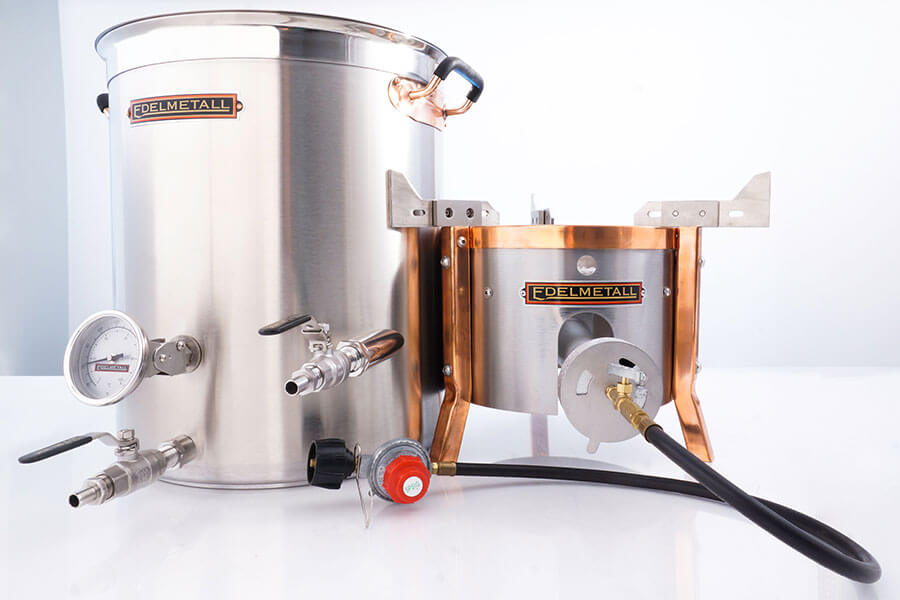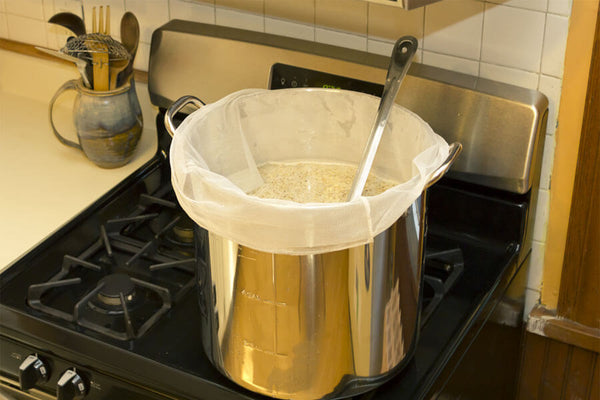October 23, 2018
To Brew on a Stove or a Burner

As a lazy homebrewer, I take a few shortcuts when brewing at home. One of these shortcuts is brewing on an otherwise entirely unsuitable, flat glass electric stove.
I do not enjoy this stove in general, but it came with the apartment, so it's what I use. Although I have a propane burner, it is less than ideal for brewing, since I live/ferment in an upper level apartment, and don't have much interest in hauling all of my gear up and down the stairs.
A Stove

As it stands, I straddle my 8 gallon megapot over two burners on my less than ideal stovetop (not pictured below). I use an anti-foam agent for stovetop batches, mainly because I often start with 7-7.5 gallons in my 8 gallon megapot. It works very well, though it does fool me into thinking that I'm not boiling aggresively enough, as the surface of the wort is quite calm.
All this is to say that I recently stumbled upon a very important issue when it comes to inadequate heat source brewing. Let us do some light reading, and dissect the meaning thereafter. Today's passage comes from Greg Noonan's "New Brewing Lager Beer," which is only partly about lager beer, but is generally an excellent book:
"Polyphenols, phosophates, lipids, and fatty acids are other significant malt constituents. Polyphenols from the husk, pericarp, and aleurone layers of the malt kernel are acidic precursors of tannins and give beer an unpleasantly bitter, astringent taste and reddish hue. With highly kilned malt, oxidation of phenolic melanoids (pigments) to aldehydes, such as by hot-side aeration, contribute to stale flavors in beer. Complex polyphenol polymers are true tannins and counteract the solubility of otherwise stable proteins. They should be eliminated from the extract by a well-roused kettle boil; in the cooled wort and the ferment, the oxidative polymerization of polyphenols to tannins causes medicinal off-flavors, astringency, and haze formation." (Noonan, 33)
A Burner

The above is nerd-speak for: when making all-grain beers, make sure to have a vigorous boil. The polyphenols responsible for tannin creation are really only going to be of concern to all-grain brewers - with extract production, the reduction of polyphenols should have been handled by the producer.
A great burner can give you a better boil than the stove ever can.
This concludes today's geekery.


